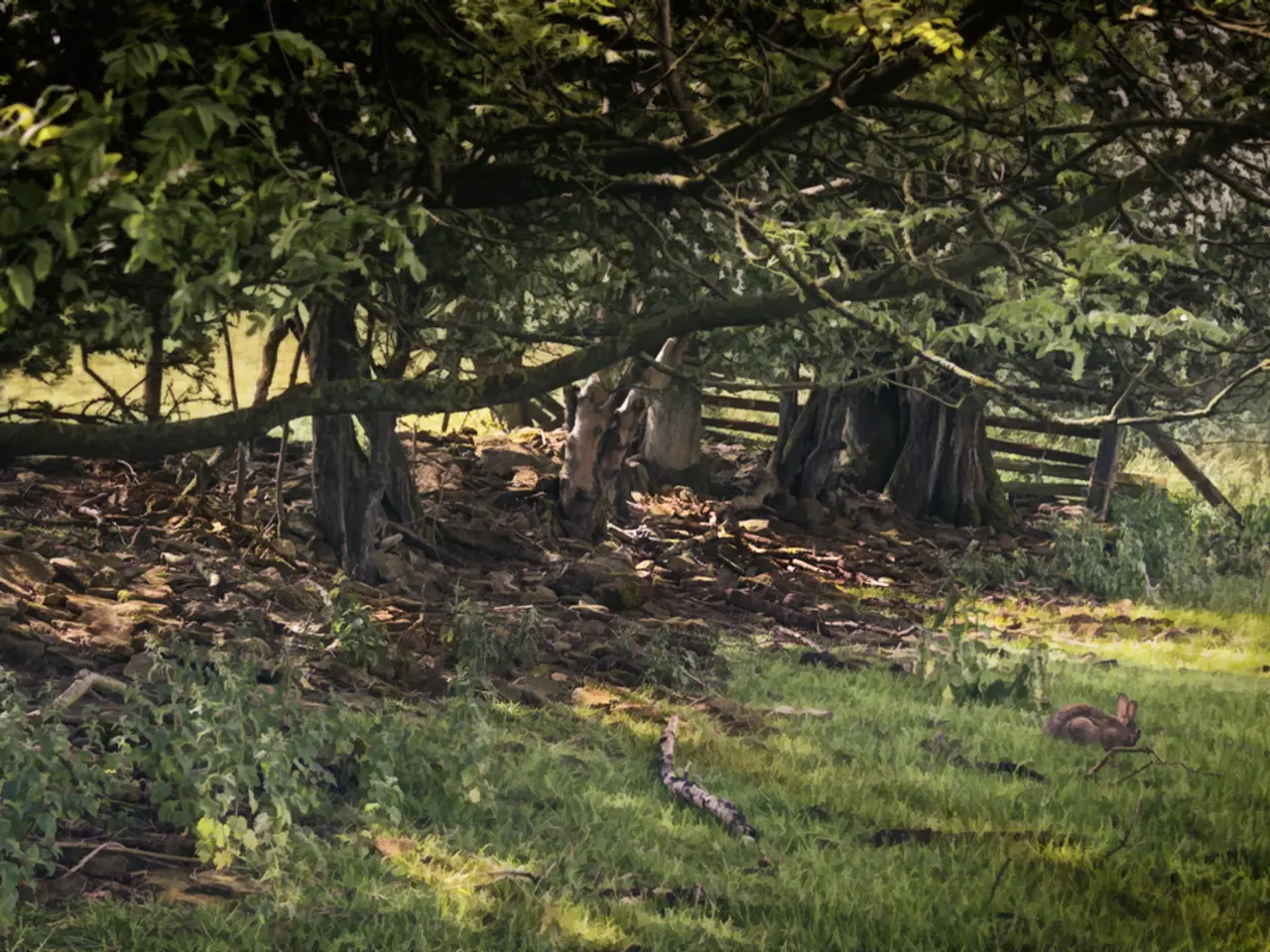Discard Your Decaying Yard Debris: Understanding the Qualms of Keeping Your Garden Leaves Intact
In the realm of gardening, a movement is gathering momentum that encourages a more natural approach: 'leave the leaves'. This practice, gaining traction in the USA and beyond, advocates for leaving fallen leaves on the ground to foster a healthier and more diverse ecosystem.
Firstly, fallen leaves serve as essential shelter and habitat for a multitude of insects, pollinators, and small wildlife during winter. They offer cover for overwintering pollinators and protect soil organisms, which are key to a healthy garden ecosystem. Leaves also provide a food source and habitat for beneficial insects, aiding in pollinator support and biodiversity.
Secondly, naturalistic gardening with native plants supports local wildlife by providing food and shelter that native species have evolved to use. Native plants produce seeds, fruits, and nectar tailored to local animals and pollinators, which non-native plants often cannot provide. They also create nesting and burrowing opportunities for birds, insects, and small mammals.
Thirdly, these practices help reduce habitat fragmentation caused by urban development and deforestation by creating interconnected green spaces that local wildlife can use as stepping stones for food, water, and shelter. This continuity is crucial as natural habitats become more isolated.
Moreover, such gardens improve ecosystem health with diverse plant life that supports nutrient recycling, pollution capture, temperature moderation, and flood reduction. Gardens with healthy, varied ecosystems combine plants, insects, animals, and fungi to sustain urban environmental quality and contribute to human wellbeing.
Lastly, leaving leaves and adopting naturalistic gardening practices encourage ecological resilience by nourishing trees and soil through leaf decomposition, enhancing nutrient cycling. They provide nesting spots in standing dead stems and natural plant structures for bees and insects, sustaining vital populations year-round. Additionally, they allow beneficial species to thrive within garden ecosystems, reducing the need for chemical interventions.
In summary, leaving leaves in the garden and fostering naturalistic, native plant gardening significantly enhance biodiversity, support pollinators and wildlife, improve soil and ecosystem health, and contribute to the ecological resilience of urban and suburban environments. Gardeners worldwide are embracing this strategy to address climate change and biodiversity decline, inviting wildlife into their gardens through practices involving mulch, leaves, and soil.
From observing the animals that share our land to learning to accept a bit of wildness, this approach is a simple yet impactful step towards a greener and more biodiverse future.
- Fallen leaves not only serve as essential shelter and habitat for various insects, pollinators, and small wildlife during winter, but they also provide a food source and habitat for beneficial insects, aiding in pollinator support and biodiversity.
- Naturalistic gardening with native plants supports local wildlife by providing food and shelter that native species have evolved to use, creating nesting and burrowing opportunities for birds, insects, and small mammals.
- These practices, such as leaving fallen leaves on the ground, help reduce habitat fragmentation caused by urban development and deforestation, creating interconnected green spaces that local wildlife can use as stepping stones for food, water, and shelter.
- Such gardens improve ecosystem health with diverse plant life that supports nutrient recycling, pollution capture, temperature moderation, and flood reduction, combining plants, insects, animals, and fungi to sustain urban environmental quality and contribute to human wellbeing.
- Leaving leaves in the garden and adopting naturalistic, native plant gardening significantly enhance biodiversity, support pollinators and wildlife, improve soil and ecosystem health, and contribute to the ecological resilience of urban and suburban environments, inviting wildlife into gardens through practices involving mulch, leaves, and soil.




